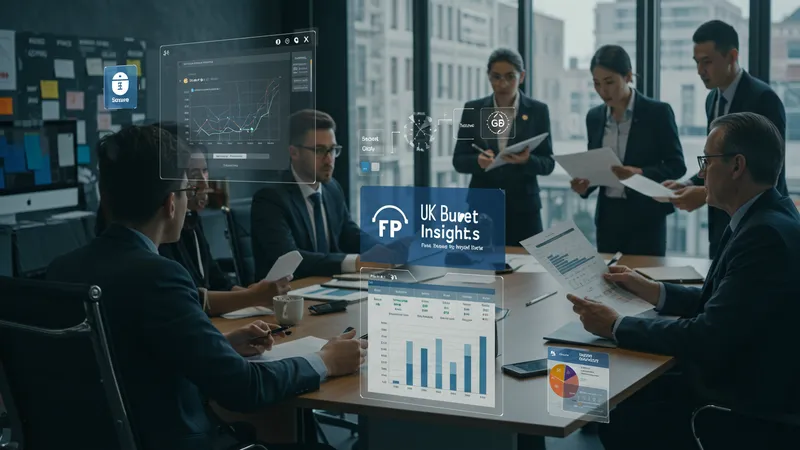

In the age of rapid digital transformation, businesses require ways to share files reliably, privately, and in line with strict regulatory standards. Secure FTP solutions are engineered to enable companies to transfer sensitive data safely between locations, departments, or partners without exposing this information to unauthorized interception or leaks. Instead of traditional file sharing or unencrypted email attachments, secure FTP platforms leverage encryption, access controls, and audit logs, ensuring each file transfer remains confidential and traceable at every step.
Organizations in the United Kingdom, especially those in finance, law, and government, depend on these secure FTP options to maintain compliance with data protection standards such as the UK GDPR. Secure FTP solutions can be cloud-based, on-premise, or hybrid, each tailored to varying risk profiles, budgets, and scalability needs. Integrating such platforms into a business workflow isn’t just about straightforward security—it acts as the backbone for maintaining trust with clients and stakeholders by showing a clear commitment to data privacy.

One key advantage of secure business FTP platforms is comprehensive encryption protocols, such as SFTP (SSH File Transfer Protocol) and FTPS (FTP over SSL/TLS). These protocols ensure that even if transmissions are intercepted, the data remains indecipherable. UK businesses, especially those handling financial or personal data, routinely adopt these standards to comply with legal requirements and avoid costly breaches.
Compared to consumer-grade file sharing tools, secure FTP solutions offer detailed administrative controls and reporting. For example, a UK financial firm can monitor who accessed a confidential document, what changes were made, and when a file was transferred—crucial for both security audits and internal accountability. SFTPPlus, as a home-grown provider, emphasizes custom compliance features to address local regulatory needs.
Integration flexibility is another strong draw. Many secure FTP vendors, like IBM Sterling, provide APIs and connectors for enterprise resource planning (ERP) and customer relationship management (CRM) platforms. This means businesses in the UK can seamlessly move large batches of regulatory documents, financial data, or client files between trusted applications without manual intervention or security lapses.
The efficiency of secure FTP platforms has significant ripple effects for productivity. Automated workflows eliminate repeated, manual file-sending, reducing both errors and turnaround times. In highly regulated UK sectors such as healthcare or finance, Globalscape EFT is recognized for its user-friendly automation, which shortens service delivery windows while tightly controlling confidentiality.
The above highlights only scratch the surface of how secure FTP elevates day-to-day operations for British businesses. The deeper details reveal even more valuable insights ahead: how do these solutions compare on compliance, cost, and unique features—and what factors truly set them apart?
Data protection is front-and-centre for UK firms, so secure FTP solutions must embed compliance as a core function. Tools like SFTPPlus are specifically designed to meet UK-centric data regulations. They provide secure transfers within the context of UK GDPR, supporting audit logging, granular access controls, and retention policies. This level of transparency is a prime reason industries like legal and finance gravitate toward trusted, compliance-focused FTP software.

Globalscape EFT and IBM Sterling Secure File Transfer both offer centralized dashboards where managers can enforce compliance policies, monitor user activity, and quickly retrieve logs during regulatory audits. Automation combined with audit trails means organizations can demonstrate, at a moment’s notice, that only authorized individuals accessed sensitive data, thus reducing the risk of non-compliance penalties in the UK market.
One unique consideration in the UK is data sovereignty—the requirement that certain data is kept within British borders. SFTPPlus, being based in the UK, often wins favour with public sector clients needing robust assurances about storage and data flows. By selecting home-grown solutions, organizations minimize legal complexity and ensure local support that truly understands national regulatory nuances.
It’s also worth noting that secure FTP tools regularly update to match ongoing changes in UK data laws. As regulatory frameworks evolve—such as possible post-Brexit amendments—leading providers invest heavily in their update cycles. For British companies, this means their investment in secure FTP is also a proactive investment in future-proofing compliance strategies.
Encryption is the backbone of any secure business FTP solution. Providers like Globalscape EFT use leading standards, such as AES 256-bit encryption and robust TLS protocols, to safeguard all files in transit and at rest. This cryptographic approach is not just a technological safeguard—it’s a requirement for organizations needing to protect client confidentiality and trade secrets across the UK.

IBM Sterling Secure File Transfer goes further by offering end-to-end encryption, combined with sophisticated key management. This means files cannot be accessed by intermediaries or unauthorized users at any point in the transfer pipeline. Such advanced capabilities are vital for British firms exchanging confidential blueprints, legal documentation, or intellectual property.
Authentication layers are equally vital. Secure FTP platforms typically enforce multi-factor authentication (MFA), granular user permissions, and IP whitelisting to double down on file transfer integrity. SFTPPlus, for example, integrates with corporate identity providers in the UK, allowing organizations to manage staff access using familiar Active Directory or LDAP systems.
By ensuring only vetted users initiate and accept transfers, UK businesses can significantly reduce internal and external risks. The proactive use of encryption, authentication, and detailed audit logs presents a formidable shield against both opportunistic threats and sophisticated data exfiltration attempts.
The financial structure of secure FTP solutions can vary widely, and British organizations must evaluate these investments with a strategic mindset. Entry-level options like SFTPPlus are attractive for small to mid-sized enterprises due to transparent annual fees (from £1,200/year), while larger platforms such as Globalscape EFT and IBM Sterling typically provide custom quotes reflective of user count, volume, and features.

Globalscape EFT’s licensing is usually subscription-based, allowing companies to scale usage as their file transfer demands grow. For organizations in the UK public sector or non-profits, some providers offer discounted pricing or flexible billing to support budget constraints while still maintaining rigorous security standards.
Cloud-hosted vs. on-premise deployment is a pivotal choice for cost management. Cloud options often lower upfront investment and simplify maintenance, making them appealing to rapidly evolving UK tech firms. By contrast, on-premise deployments, while requiring higher initial costs, give highly regulated industries—such as financial services—direct oversight into every facet of security and compliance spending.
Ultimately, the real value of a secure FTP investment isn’t in base pricing alone. Support responsiveness, update cycles, training, and custom compliance modules all play a role. British clients often weigh these elements with a long-term perspective, seeking out providers known for strong local support and a proven track record within the UK business landscape.
When UK organizations evaluate secure FTP solutions, ease of deployment and integration is a central concern. Vendors like IBM Sterling and Globalscape EFT provide guided onboarding, documentation tailored for British business processes, and professional services that minimize disruption during transition. This is critical for sectors where downtime during upgrades can result in compliance challenges or business delays.

Practical integration with existing infrastructure—such as ERP, CRM, and cloud storage platforms—enhances operational efficiency. Secure FTP tools often offer API endpoints or pre-built connectors, enabling British companies to automate inbound and outbound file transfers, synchronize data with major cloud services, and streamline workflows that span multiple departments and locations across the UK.
Everyday usability is another key factor. User interfaces are crafted to suit both IT administrators and non-technical staff, providing self-service portals, easy drag-and-drop file submissions, and clear reporting dashboards. In sectors like legal or healthcare, where staff may have varied technical skillsets, these features reduce friction and promote widespread adoption.
All these operational factors mean that secure FTP solutions do more than simply secure files—they become foundational to how UK businesses build trust, meet client expectations, and uphold their reputations for data stewardship. As businesses continue to digitize, the future of secure file transfer solutions appears set to become only more central to British commercial success.